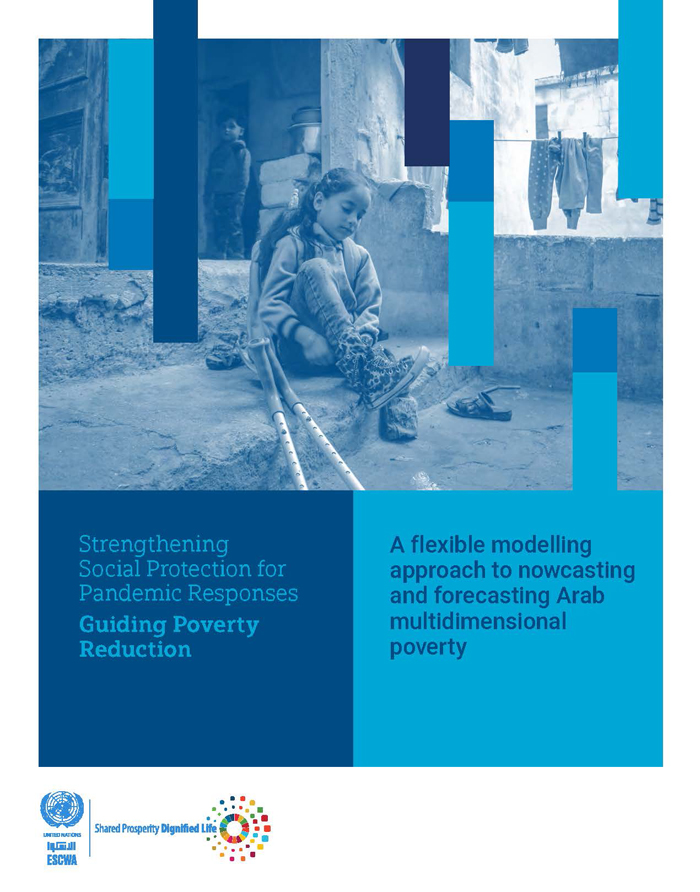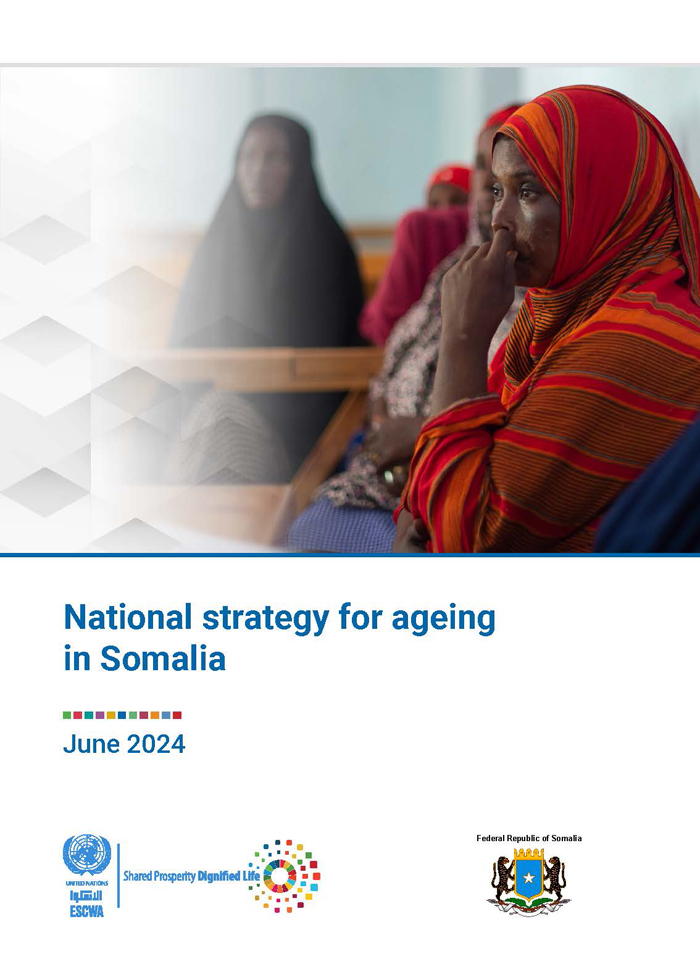
ESCWA Publication: E/ESCWA/CL3.SEP/2021/TP.1
Country: Arab region
Publication Type: Information material
Cluster: Gender Justice, Population and Inclusive Development
Focus Area: Gender equality
Initiatives: Addressing multidimensional poverty
SDGs: Agenda 2030
Keywords: Covid-19, Poverty, Gender equality, Poverty mitigation
A flexible modeling approach to nowcasting and forecasting Arab multidimensional poverty
June 2021
In this report, we propose a model to predict the trajectory of Arab multidimensional poverty. In our approach, we model the change in each dimension separately. Instead of calibrating the Arab multidimensional poverty index trajectory, we model each dimension’s trajectory separately as some dimensions may be more affected than others by per capita GDP fluctuations, external shocks such as Covid-19, social unrest, or armed conflict. We aggregate the overall change by assuming the stability of the copula through time. The copula is the mathematical function that links together all the cumulative distributions of each indicator to reproduce the multidimensional cumulative distribution for all indicators on which we compute the Arab MPI. We also illustrate our methodology using UNICEF Multiple Indicator Cluster Surveys (MICS) for Iraq 2011 and 2018. Two striking results emerge from our illustration. The first is that our model reproduces the value of the Arab MPI for Iraq in 2011 using the estimated copula function of 2018 (within the 95% confidence interval). This result means that with a seven-year lag, the copula’s stability assumption is certainly reasonable. Our illustration also indicates that, under our assumption on the impact of transmission of the Covid-19 shock, the pandemic is equivalent to bringing the country seven years backward in human development.
Related content
Gender equality
,
In this report, we propose a model to predict the trajectory of Arab multidimensional poverty. In our approach, we model the change in each dimension separately. Instead of calibrating the Arab multidimensional poverty index trajectory, we model each dimension’s trajectory separately as some dimensions may be more affected than others by per capita GDP fluctuations, external shocks such as Covid-19, social unrest, or armed conflict. We aggregate the overall change by assuming the stability of the copula through time. The copula is the mathematical function that links together all the cumulative distributions of each indicator to reproduce the multidimensional cumulative distribution for all indicators on which we compute the Arab MPI. We also illustrate our methodology using UNICEF Multiple Indicator Cluster Surveys (MICS) for Iraq 2011 and 2018. Two striking results emerge from our illustration. The first is that our model reproduces the value of the Arab MPI for Iraq in 2011 using the estimated copula function of 2018 (within the 95% confidence interval). This result means that with a seven-year lag, the copula’s stability assumption is certainly reasonable. Our illustration also indicates that, under our assumption on the impact of transmission of the Covid-19 shock, the pandemic is equivalent to bringing the country seven years backward in human development.



